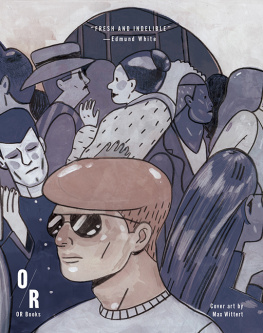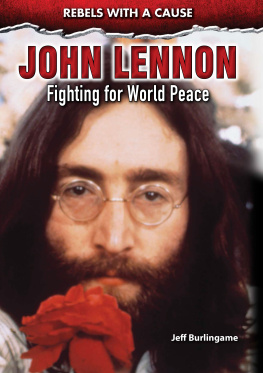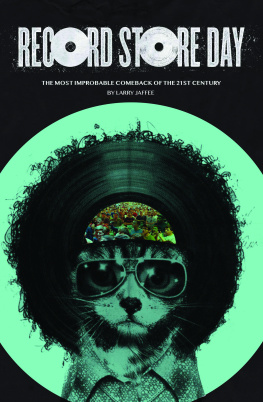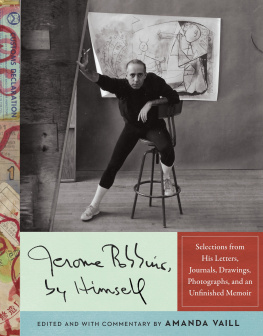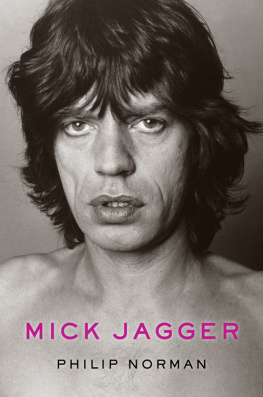
***
N IGHTS AT R IZZOLI is the memoir of Felice Picano, an aspiring but near-starving young writer who in 1971 lucked into a job at a legendary palace of books, music and art. There, Kennedys and Rockefellers mingled with tourists and regular customers under the watchful gaze of sophisticated employees, themselves a multi-talented, international collection of artists, scholars and rogues.
The gig metamorphosed into a life-changing experience, one that exposed the young writer to some of the brightest lights in the worlds cultural capital. At the store, he himself became a key player on a stage that opened every night to a new drama that often featured romance, at times violence, and of course always the books and their readers.
And when his shift was over, in this post-Stonewall, pre-AIDS era, the handsome young bookstore manager stepped from one world into another, prowling the piers, bars and very private clubs of a different New York City.

2014 Felice Picano
Published by OR Books, New York and London
Visit our website at www.orbooks.com
For all rights information: rights@orbooks.com
All rights reserved. No part of this book may be reproduced or transmitted in any form or by any means, electronic or mechanical, including photocopy, recording, or any information storage retrieval system, without permission in writing from the publisher, except brief passages for review purposes.
First printing 2014
Cataloging-in-Publication data is available from the Library of Congress.
A catalog record for this book is available from the British Library.
ISBN 978-1-939293-67-1 paperback
ISBN 978-1-939293-68-8 e-book
Cover artwork by Max Wittert. Lettering by Courtney Andujar.
Text design by Bathcat Ltd. Typeset by CBIGS Group, Chennai, India.
Printed by BookMobile in the United States and CPI Books Ltd in the United Kingdom. The U.S. printed edition of this book comes on Forest Stewardship Council-certified, 30% recycled paper. The printer, BookMobile, is 100% wind-powered.
If you make up your mind not to be happy, theres no reason why you shouldnt have a fairly good time.
Edith Wharton

I N M EMORY OF
D ENNIS S ANDERS AND A DA C ALABRESE
Prologue
I was in New York again recently, visiting. My friend Ross had gotten us tickets for a lecture at the Grolier Clubsome British expert discussing the great seventeenth-century British architects Wren and Vanbrugh.
We arrived late enough to find the little hall filled, darkened to obscurity to show slides of the buildings, and we had to feel around for the few empty seats. After the talk was over and the lights went back on, the folding chairs were folded and collected, and people stood around talking, while Brie and brown bread, flutes of champagne, and crackers and pt were passed around by small, elderly women in long skirts.
Assuming I would know no one there, I took in the sidewall windowed displays, all about Henry VIII. The Grolier Club on 60th Street off Madison Avenue, you should know, is one of the very last hideouts of blue-blooded, Anglo-Saxon Protestantism in America, despite the medieval-style painted brick exterior, despite its two-story, faux-Middle-Ages dcor within, where Quasimodo wouldnt feel out of place.
Mostly, I looked at big old Bibles and many allegedly revered objects of the sixteenth-century Reformation. But among all that, I was charmed to see, scrawled by a childish hand inside the flyleaf of a little sky-blue elementary school Latin reader, This is my bokePrynce Henry. He must have been eight or nine when he wrote it.
I turned to show it to my friend, but he was at the lectern, having his own newly purchased book signed. Then I spotted several people nearby. One was a teary-eyed fellow close to seventy, with slicked-back hair once blond now who-knew-what-color precisely, but dressed in a bluish smoking jacket and parti-colored silk furled tie indicative of some university or other, with a mustard-hued corduroy vest. He also sported elaborately tasseled Oxblood shoes no one wears anymore that we used to call opera-slippers, with soles so thin theyre only good to walk from the lobby to the limo. He lumbered forward with effort, his body on a distinct thirteen-degree slant, head backmost.
Two elderly, osteoporotic women, one in a wheelchair, another in a floor-length black sweater, awaited him and meanwhile tried not to stare at me as though they knew who I was. He at last reached them. One said a few words and he half turned, looked at me through those little Caribbeans of eyes, and greeted me with a nod; the women managed shy smiles.
I did know them, I realized, from thirty-five years ago or more. All of them used to come into Rizzoli Bookstore, just several streets away, when I worked there. None of them very regular customers; they would come in a few times a year for graduation or family birthday gifts, or whenever a new book on their topic came out: Portuguese faience, Egyptian scarabs, East Indian tomb paintings, scrimshaw carvings, prize-winning yawls, netsuke, inyo, or for that matter, seventeenth-century British architecture: we were sure to have it in stock. We specialized in having such books upon our shelves. Everyone knew that when you were looking for the very latest and most expensive volume on an unusual, arty subject, Rizzoli was where you shopped.
I went over to say hello, thinking wed all speak about the bookstore, but one woman stopped me immediately, laying a refined down-to-skin-and-bones hand upon my jacket sleeve: Youre so distinguished looking! Will you be lecturing here soon, too? May we hope?
Lecture there? Me? At the Grolier Club? On what subject, I had to wonder? The overuse of analingus as metaphor in second-generation post-Stonewall poetry? No, I didnt think so. Ive grown up now and I no longer shock for the sake of it: especially not people as fragile looking as this trio.
I merely smiled and stuffed myself with Brie and bread and was joined by my friend Ross, who was in a cheery mood and hungry for steak dinner. We were soon having a good French bistro meal nearby.
After that, we walked down late-night Fifth Avenue mid-week Manhattan, past the newI think of it as the pseudoRizzoli shop, down past the older one, the real one, the one I remembered so wellnow Bendelsand I explained to Ross where everything once had beenGeorge Jensen Glassware at the current Trump Tower, the Doubleday Bookstore chains flagship shop where that Verizon Communications palace now sits, Scribners with its black wrought iron transformed into a meretricious-looking Best Buyso much of it changed, so changed and yet the same, as only New York can change and be the same.
I couldnt help but recall what it was like for me, those years when, at one in the morning, with the days receipts counted and verified and in the safe, the shop locked behind me, I would emerge onto this street, free at last, headed toward the Independent Line subway at the Devils Building666 Fifthand then downtown to my flat in the West Village, and never in any real hurry to get there.
I lived a night life in those years, not going to sleep until long after my post-work dinner, sometimes at three, four, five, even later in the morning, and not awakening til noon or after. Living a night life meant that I inhabited an entirely different kind of New York City. Just now, I almost wrote an elite city, because it was so sparsely inhabited, so relatively quiet, and after all, filled with odd, often inexplicable incidents and people.

